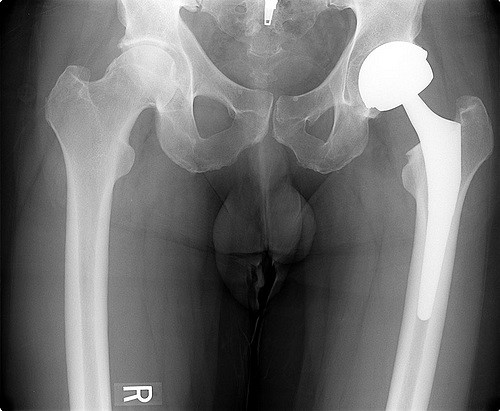The new members of the National Health and Hospital Reform Commission certainly have their work cut out for them – Australia’s health policies are widely agreed to be in need of major surgery. CPD asked several health experts to contribute their thoughts on the challenges the Commission will face, and the steps it will need to take to bring about real change. If you would like to contribute your thoughts on this issue please send your comments to editor (at) cpd.org.au
Jennifer Doggett, health consultant & CPD author
The first challenge for the National Health and Hospitals Reform
Commission will be to understand their role.
They could be forgiven for being a little confused in the light of the
recent comments by the Prime Minister that the Commission would undertake a ‘root and branch’ review of health funding, while also maintaining
Labor’s commitment to the private health insurance rebate.
Given that the rebate costs the community over $4 billion annually
and is almost universally agreed among health experts to be an inefficient use
of resources, its exclusion from the Commission’s brief undermines Rudd’s
commitment to a comprehensive review.
The second challenge for the Commissioners will be to negotiate
the politics (rather than the policy) of health. One advantage they have is that there is
already broad agreement among the health sector (with the exception of the AMA)
on the main issues and direction for reform.
The Communique developed at the Australian Healthcare Reform Alliance
conference last year should provide a useful starting point for the
Commission.
The opposition of the AMA to any reform agenda proposed by the
Commission should be expected. The
Commissioners should remember that the AMA has a consistent history of
opposition to major health reforms (including the introduction of the PBS in
1944, Medibank in 1974 and Medicare in 1983).
In fact, its record is so consistent that AMA opposition to a reform
proposal could be seen as almost a pre-requisite for its success and subsequent
popularity among the Australian people.
The third challenge for the Commissioners is to overcome the
inherent biases they bring to their role. While all ten Commissioners have
impressive records within their respective fields, they all will necessarily
carry some of the values and limitations of their professional sphere to their
positions. One concern here is the heavy
weighting towards doctors on the Commission (four out of ten commissioners have
a medical background) and the lack of people with other clinical backgrounds
(there is only one nurse and no-one from the allied health sector).

Given that addressing three of the Commission’s key issues
(chronic disease, ageing of the population and rising health costs) will
require solutions based on workforce reform and restructure, including clinical
role substitution and a greater focus on multi-disciplinary care, the exclusion
of experts from the non-medical health professions may present a barrier to the
identification of innovative approaches that don’t place doctors at the centre
of the health system.
Another issue of concern is the lack of consumer
representation. As experienced and
knowledgeable as all the Commissioners are, they are no substitute for consumer
expertise. This is not about tokenism –
it is about outcomes. The history of
health policy demonstrates that it is very hard to get it right when consumers
are not closely involved at all stages of development and implementation. The consumer movement in Australia has
matured significantly over the past decade, it has produced a number of high
quality and experienced advocates who could add considerable value to the work
of the Commission.
The final challenge for the Commission is the most
important. It is to develop a reform
agenda that actually delivers health outcomes, rather than simply looks good on
paper and panders to the interests of powerful stakeholder groups.
As
the previous government demonstrated on a number of occasions, it is possible
to spend a quite frightening amount of money in the health portfolio without
achieving any demonstrable improvement in the health of the population. If the Commission can negotiate the various
vested interests in the health sector, ignore the likely opposition of the AMA,
focus on key areas where there are health gains to be made and address some of
the tough questions about rationing of health resources, it stands a real
chance of delivering significant and lasting improvements to the Australian
health system.
Dr Denis King, VMP St George Hospital
It seems that all agree that the new National Health and Hospitals Reform Commission has a unique opportunity for the first major reform of the Health system since the introduction of Medicare.
Medicare as a system has served Australia very well but due to a combination of changing demography and the impact of competing political and administrative priorities, the system has started to founder.
As I have written elsewhere, Health in Australia has become the new cargo cult, in that our community, including health professionals, continues to expect more money for Health without looking seriously at how we consume the substantial resources we currently use. The pattern of Health in recent times has been a series of crisis responses, usually an inquiry, in which activity is often substituted for progress.
Most initiatives have tended to deal with particular aspects in isolation and, although admirable in their own right, do not advance the cause of the Health system as a whole, what Charles Lindblom has termed "disjointed incrementalism", a process where policy recommendations are made in isolation rather than against a background of a broad strategic vision for the system.
The greatest trap for the Reform Commission is that it may become another contributor to that process. It is imperative that the fundamental issues in the system, structural reform to improve the efficient and appropriate use of existing resources, effective workforce planning including a comprehensive review of existing paradigms and the development of a rational set of community expectations flow from this Inquiry, and not just a recommendation to apply more resources in the same old way. If not the Commission will come to be judged as just another public inquiry resulting from the heat of political debate generating a great deal of activity but not the requisite progress.
Ian McAuley, CPD fellow
You have a hard job.
To design an integrated system, while
leaving intact one of the basic flaws of our current arrangements.
That flaw is a set of incentives which
encourage people to jump the queue. While the Government says it believes in ‘social
inclusion’ it’s perpetuating a ‘two tier’ arrangement
for health care.
Of all ways to fund health care, private
health insurance is the most costly and inequitable.
The Government knows our health
arrangements are seriously fragmented, but private insurance is a major
contributor to that fragmentation.
The insurers have created four myths. The
first is that without private insurance there will be no private sector
delivering health care, but there would be many benefits if private hospitals
could operate alongside and on the same funding basis as public hospitals. The
second is that they offer a "market" solution, but that too is
false, because private insurance muzzles price signals; it carries incentives
for overuse and diverts scarce resources from where they are most needed. The
third is that private insurance offers choice, but it doesn’t offer real choice;
people may want choice of therapy but there is no point in choice of financial
intermediary. The fourth is that private insurance is "self reliance",
but, in fact, those truly self-reliant people who pay for their own
hospitalization and ancillary care are denied the subsidies offered to those
who depend on insurance.
These incentives for private health
insurance are costing the Commonwealth close to $6 billion a year. It’s
a big subsidy for a financial intermediary which is doing little more than
adding overhead costs to our health care.
The Government may be frightened to take
on the insurers, but you should not be constrained by such fear.
|
[adsense:234×60:1:1] |



